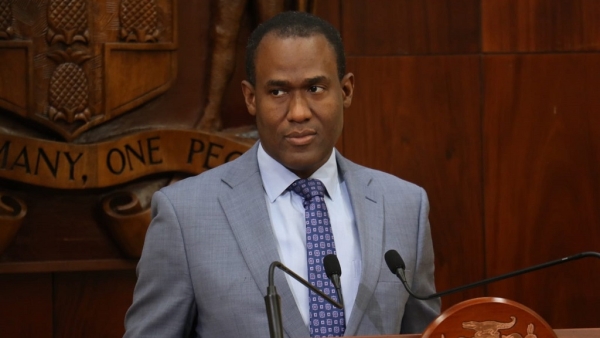"What the prime minister asked is that the scale for prime minister remain as it is. So, that is the salary scale," said Clarke in response to questions on the issue at a post-Cabinet press briefing on Wednesday.
"This is not an individual Andrew Holness decision. He has asked that the salary scale for (the) prime minister remain unchanged," Clarke indicated.
Under the public sector compensation review, the prime minister's salary would have moved from $9.1 million in 2021 to $28.6 million on April 1, 2024.
However, Holness said on Monday that he would forego the increase and direct the Finance Ministry's Transformation Implementation Unit (TIU) to have the prime minister's salary remain as is.
There has been public outrage over the massive salaries for politicians at both the central and local government levels since an announcement from Clarke last week.
When asked during the post-Cabinet press briefing on Wednesday whether the scale can be readjusted by future prime ministers to the levels outlined under the new compensation structure, Clarke reiterated that "the prime minister has asked that the scale be unchanged."
Asked if this meant that the prime minister would continue to receive the allowances he currently receives with his $9.1-million salary, Clarke again reiterated his response.
"The prime minister has asked that the compensation scale for the job of prime minister remain as is," Clarke responded.
He added: "I think that scale is public, and all information that is associated with it is public."
When quizzed by a reporter as to whether the decision by the prime minister would also impact retired prime ministers, Clarke did not directly respond, but repeated his response on Holness' refusal of the refreshed salary for prime minister.
Meanwhile, Clarke pointed out once more that the salary hike granted to members of the political directorate was the "identical framework that was in place for the better part of 37 years".
That framework includes the determination that Cabinet ministers should be paid $52 above "the highest level" of a permanent secretary's pay", Clarke said.
"The principle behind that framework has been to... keep the principle... that the supervisor is paid more than the supervisee," he insisted.
Clarke said if the scales were set where Cabinet ministers would be on the same pay scale as permanent secretaries on the new compensation structure, then it could result in the latter receiving more pay than ministers.
Quizzed further as to whether the finance ministry had proposed the new salary options for Cabinet ministers, Clarke was at pains to again emphasise that the framework for compensation of politicians has not changed.
"The ministry would not on its own suggest a different framework. If there was to be a different framework, it would have to come from an independent source.
"So, all the ministry did was to apply the existing framework to a new compensation span," stated Clarke.

